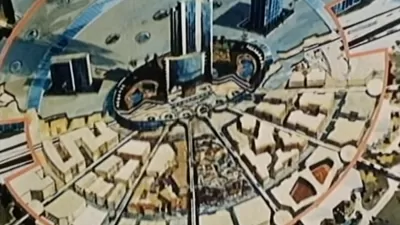Smart cities technologies are not going to lead to the right outcomes unless end users are recognized as integral players in the planning process.

Jared Mondschein considers the reasons that smart cities initiatives have been less than successful in addressing urban needs such as improved mobility and better water management. He believes that engagement with stakeholders early on in the design process is key to improving smart cities outcomes.
"Local smart city initiative leaders have told me and my colleagues that the technologies themselves aren’t the problem – indeed, the sensors and other tools being deployed are often well established with few issues. Rather, smart cities are struggling to navigate the disparate (and often competing) goals, values and needs of the various stakeholders," says Mondschein.
When local residents are not at the planning table with vendors and city officials, the technology employed is often not the right fit for the needs of users. For example, open data portals where smart city data is available should be empowering residents, businesses, and organizations. "But we've uncovered that design flaws may be preventing users from easily accessing and analyzing the data to create community-oriented solutions," notes Mondschein.
FULL STORY: Residents need a seat at the table when planning smart cities

Planetizen Federal Action Tracker
A weekly monitor of how Trump’s orders and actions are impacting planners and planning in America.

Maui's Vacation Rental Debate Turns Ugly
Verbal attacks, misinformation campaigns and fistfights plague a high-stakes debate to convert thousands of vacation rentals into long-term housing.

Restaurant Patios Were a Pandemic Win — Why Were They so Hard to Keep?
Social distancing requirements and changes in travel patterns prompted cities to pilot new uses for street and sidewalk space. Then it got complicated.

In California Battle of Housing vs. Environment, Housing Just Won
A new state law significantly limits the power of CEQA, an environmental review law that served as a powerful tool for blocking new development.

Boulder Eliminates Parking Minimums Citywide
Officials estimate the cost of building a single underground parking space at up to $100,000.

Orange County, Florida Adopts Largest US “Sprawl Repair” Code
The ‘Orange Code’ seeks to rectify decades of sprawl-inducing, car-oriented development.
Urban Design for Planners 1: Software Tools
This six-course series explores essential urban design concepts using open source software and equips planners with the tools they need to participate fully in the urban design process.
Planning for Universal Design
Learn the tools for implementing Universal Design in planning regulations.
Heyer Gruel & Associates PA
JM Goldson LLC
Custer County Colorado
City of Camden Redevelopment Agency
City of Astoria
Transportation Research & Education Center (TREC) at Portland State University
Jefferson Parish Government
Camden Redevelopment Agency
City of Claremont





























